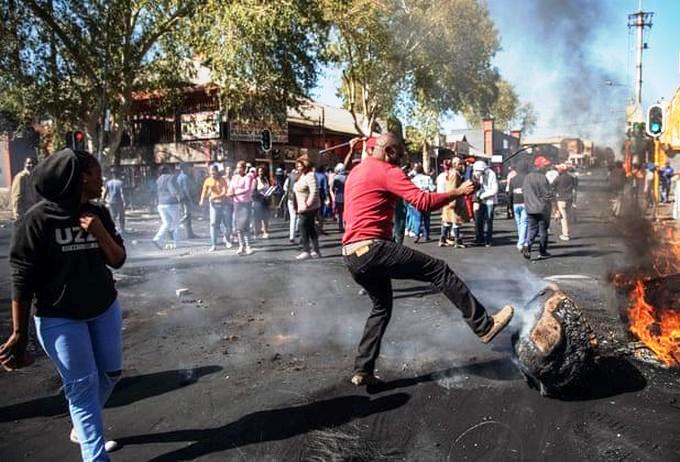
BRIAN CHITEMBA ZENOPHOBIA is a word that has been widely used in attacks against foreigners in South Africa in recent years.
An etymological check of xenophobia shows that, like many English words, is derived from Greek words “xeno”, meaning stranger and “phobia” referring to fear. The dictionary of psychology says xenophobia is fear of strangers.
Post-apartheid South Africa has seen a sharp rise in xenophobic attacks.
South Africans have bitterly complained about how foreign nationals were robbing them of jobs. The dislike or fear of foreigners has resulted in some of the most brutal attacks of African migrants, among them Zimbabweans.
In September 2019, Isaac Sithole — a Zimbabwean — was killed by a mob in horrific circumstances.
He was beaten to pulp before the attackers set him ablaze.
Sadly, Sithole, left a six-week old baby.
Three years later, an angry mob has murder another Zimbabwean, in cold blood.
- Chamisa under fire over US$120K donation
- Mavhunga puts DeMbare into Chibuku quarterfinals
- Pension funds bet on Cabora Bassa oilfields
- Councils defy govt fire tender directive
Keep Reading
Graphic images from the tragic incident in the sprawling township of Diepsloot in Gauteng province, has painted a grim picture of how South Africans are determined to push out migrants.
In the latest anti-migrants attacks, police also raided Diepsloot where about 24 undocumented foreigners were arrested. These included Zimbabweans.
Our fellow countrymen are in trouble across the Limpopo as the South African government has since terminated a special permits dispensation for Zimbabweans, many of whom are likely to be deported when the grace period to renew documents expires at the end of this year.
Some of the factors to the high number of Zimbabwean migrants in South Africa are socio-economic reasons. From 2000, political tensions escalated and the economy nose-dived. Zimbabwe, regrettably tilted from Africa’s bread basket to a basket case due to the late President Robert Mugabe’s maladministration, endemic corruption, policy inconsistencies and price controls.

Economic problems remain a challenge. In fact it is a crisis, which has reduced millions into penury.
Only a few ruling elite and a powerful oligarchy are enjoying luxury lifestyles.
Over seven million people live in extreme poverty, according to the World Bank.
Harare needs to learn what other African governments, such as Botswana are doing to achieve socio-economic stability. Proper management and accountability of mineral resources – gold, platinum and diamonds, among many, can improve the battered economy.
If the socio-economic and political fabric is stable then less Zimbabweans will desperately flock to other countries for menial jobs.
The continued migration problem causes a frail social cohesion as families are separated.
The concomitant difficulties associated with migration such as xenophobia and racism can be avoided once the government create an enabling environment for young people to do business while others can get jobs in industrial hubs such as Bulawayo which are slowly running into ghost towns due to rapid de-industrialisation.











